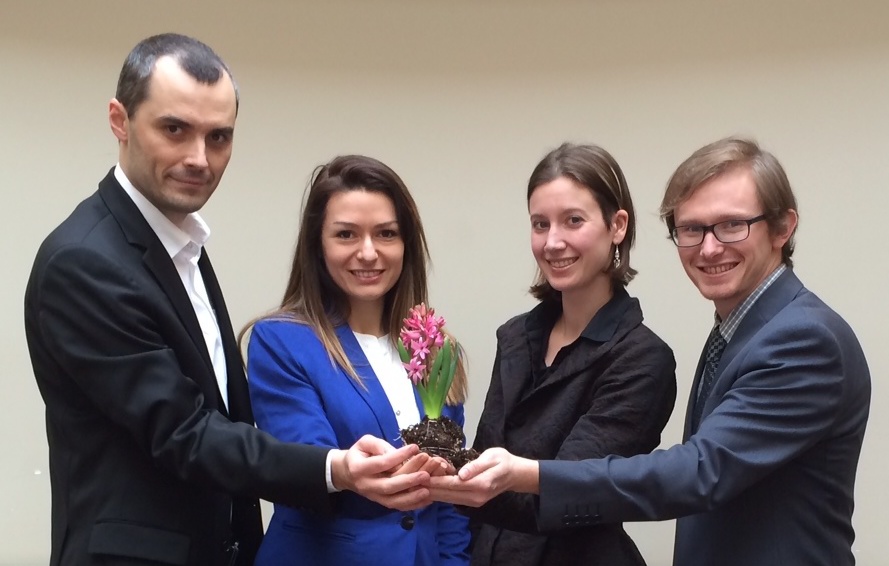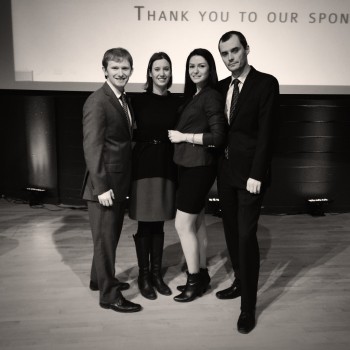My colleague Shaun McPhee has already spoken about his experience at the HEC Sustainability Challenge in Montreal. This post will provide a quantitative analysis of this experience (prepare for a lot less chronology, a lot more numbers).
First things first, let’s lay out our assumptions (you can’t have a good quantitative analysis without a thorough talk about the quantitative factors that underpin your quantitative simulation).
Let’s assume that the total score for a perfect presentation is something close to 100. Of course, last year’s SFU team got close to that score (96), and they won the contest hands-down (hands-up?). By the way, thanks EVERYONE for reminding us of this every waking moment of the day.
A more realistic score to place in the top 3 would something close to 82 points (as we say in case study competitions: “I’ll be more than happy to talk about our assumptions and where these numbers are coming from, at the end of our presentation” – in other words, take it to the comments, people).
Next step would be to assign an influence score to all the input variables:
| Stephanie |
20 |
| Anca |
12 |
| Shaun |
12 |
| Michelle |
12 |
| Adrian |
12 |
| SFU |
7 |
| Montreal |
4 |
| Judges |
5 |
| Hot Dog Bar |
-2 |
|
82 |
The easy way out would be to make these variables static, but we don’t do easy here: we need to assign some distributions to account for the natural variability of the influence score. The sensitivity analysis (gotta have a sensitivity analysis) shows the relative importance of each of the input variables:
How does one read this? Easy – the higher the bar (and the closer the coefficient to 1), the greater the correlation between that particular input and the final score.
At this point, the model prompts me to thank Dr. Stephanie Bertels for her invaluable insight and no-nonsense approach to feedback.
The model can support removing one of the input variables and compute the likelihood of still getting to 82 points. Now surprisingly, the chances of us getting to 82 on our own would have been a neat and tidy 0%.
There might have been a chance getting to 82 with just 3 people; it’s a theoretical chance of 0.3%. In other words, no chance; gotta have (and we did!) good people with complementary skills, and flexibility in opinions.
 We took advantage of the feedback from the judges after the first round; they gave us some useful suggestions on presentation style and some of the content. The support from SFU has been essential in allowing us to focus our brainpower on the academic competition.
We took advantage of the feedback from the judges after the first round; they gave us some useful suggestions on presentation style and some of the content. The support from SFU has been essential in allowing us to focus our brainpower on the academic competition.
The key learning points from this experience?
- Trust your coach
- Believe in your teammates
- Seek feedback from the judges
- Be grateful of support from your sponsors (thanks, SFU)!
- Do not trust the Hot Dog Bar (especially if it’s free)!
Adrian Mitescu is a current student in the MBA full time program at SFU. In the free time when he does not manipulate numbers, he thinks of better ways to manipulate numbers (plus sustainability issues). Also, amateur astronomy. He can be reached on LinkedIn.



